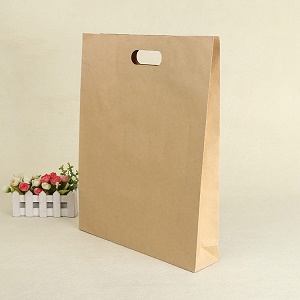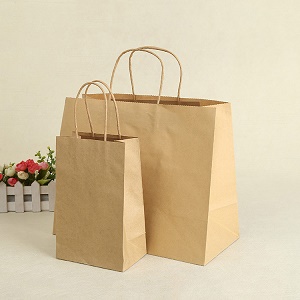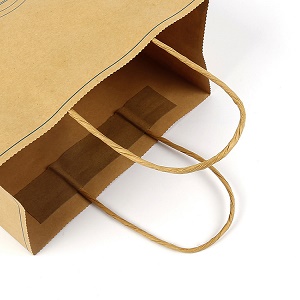How about the kraft paper bag in the 19th century?
Back in the 19th century, before the advent of large retail, it was common for people to shop for all their everyday goods at the grocery store near where they worked or lived. It is a headache to sell everyday goods piecemeal to consumers after they are shipped in bulk to grocery stores in barrels, cloth bags or wooden boxes. People could only go out shopping with baskets or homemade linen bags. At that time, the raw materials of paper were still jute fiber and old linen head, which were of low quality and scarce, and could not even meet the needs of newspaper printing. Around 1844, German Friedrich Kohler invented the wood pulp papermaking technique, which greatly promoted the development of paper industry and indirectly gave birth to the first commercial kraft paper bag in history.
In 1852, Francis Waller, an American botanist, invented the first kraft paper bag making machine, which was then promoted to France, Britain and other European countries. Later, the birth of plywood kraft paper bags and the progress of kraft paper bag stitching technology made the cotton bags used for bulk cargo transportation also replaced by kraft paper bags.
When it comes to the first brown kraft paper bag for shopping, it was born in 1908 in St. Paul, Minnesota. Walter Duverna, a local grocery store owner, started looking for ways to get customers to buy more things at once in order to boost sales. Duverna thought it would be a prefabricated bag that was cheap and easy to use and could hold at least 75 pounds. After repeated experiments, he will be the quality of a material of this bag lock on the brown kraft paper, because it USES the longer conifer wood fiber pulp, in the process of cooking by chemistry more moderate caustic soda and alcali sulphide chemicals processing, make the strength of the original wood fiber damage is small, thus finally made of paper, close connection between fiber, paper is tenacious, can withstand large tension and pressure without cracking. Four years later, the first brown kraft paper bag was made for shopping. It is rectangular at the bottom and has a larger volume than the traditional V-shaped kraft paper bag. A rope runs through the bottom and sides of the bag to increase its load-bearing capacity, and two easy-to-handle pulls form on the top of the bag. Duverna named the shopping bag after himself and patented it in 1915. By this time, more than one million of these bags were being sold annually.
The appearance of brown kraft paper bags has changed the traditional thinking that the amount of shopping can only be limited to the amount of things that can be carried in both hands, and also made consumers no longer worry about not carrying it, which reduces the pleasure of shopping itself. It may be an exaggeration to say that the brown kraft paper bag boosted retail as a whole, but it at least revealed to businesses that it is impossible to predict how many things consumers will buy until the shopping experience becomes as comfortable, relaxed and convenient as possible. It is precisely this point that causes the later-comers to attach importance to consumer shopping experience, and also promotes the development of supermarket basket and shopping cart later.
In the following half a century, the development of brown kraft paper shopping bags can be said to be smooth, the improvement of the material makes its bearing capacity continuously enhanced, the appearance has become more and more exquisite, manufacturers printed all kinds of trademarks, patterns on brown kraft paper bags, into the shops and shops in the streets. Until the middle of the 20th century, the emergence of plastic shopping bags became another large revolution in the development history of shopping bags. It is thinner, stronger and cheaper to make advantages such as the once popular brown kraft paper bag eclipsed. Since then, plastic bags have become the first choice for daily consumption, while cowhide bags have gradually “retreated to the second line”.
Finally, the faded brown kraft paper bag can only be used in the name of “nostalgia”, “nature” and “environmental protection” for a small number of skin care products, clothing and books, audio and video products packaging.
But a global anti-plastic trend is turning environmentalists’ attention back to the old brown kraft paper bag. Since 2006, McDonald’s China has gradually introduced a insulated brown kraft paper bag for takeaway food in all its outlets, replacing the use of plastic food bags. The move has been echoed by other retailers, such as Nike and Adidas, which used to be big consumers of plastic bags, and are replacing plastic shopping bags with high-quality brown paper ones.
Post time: Mar-28-2022





